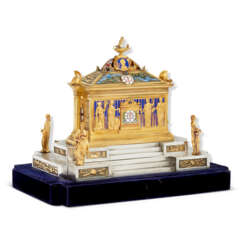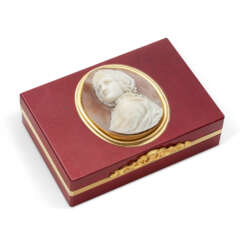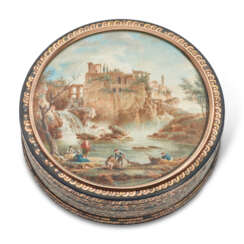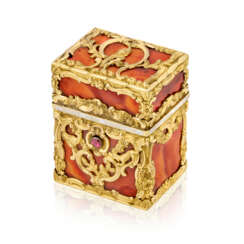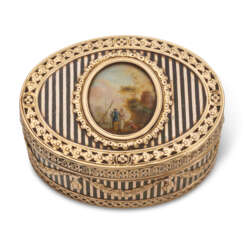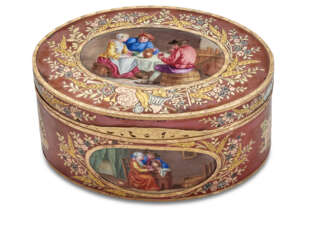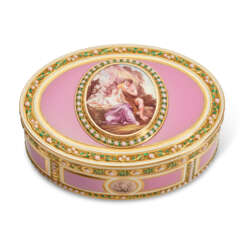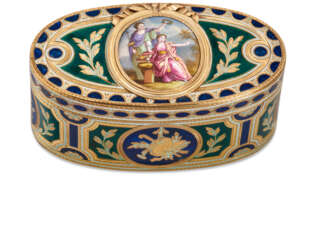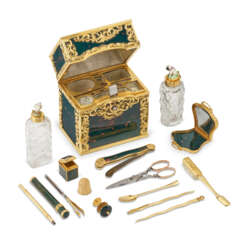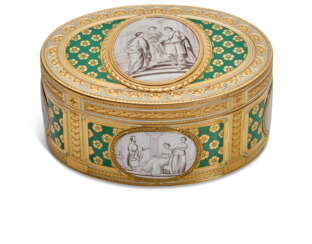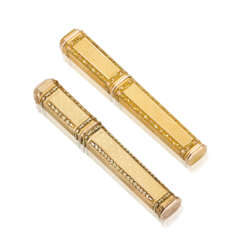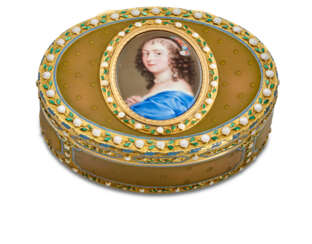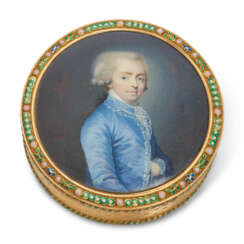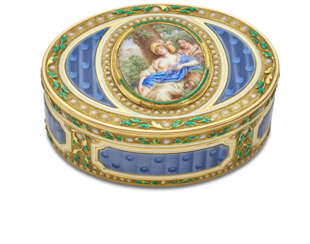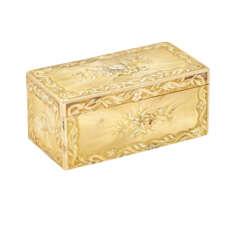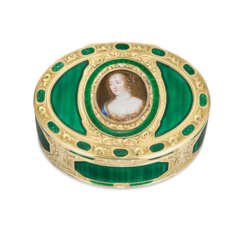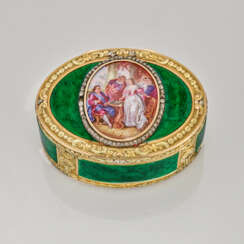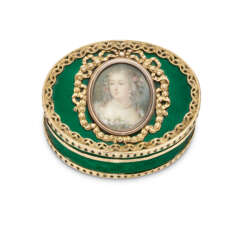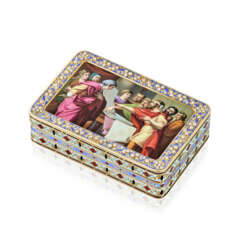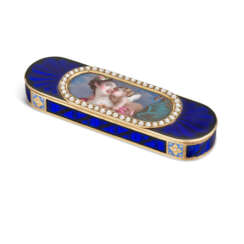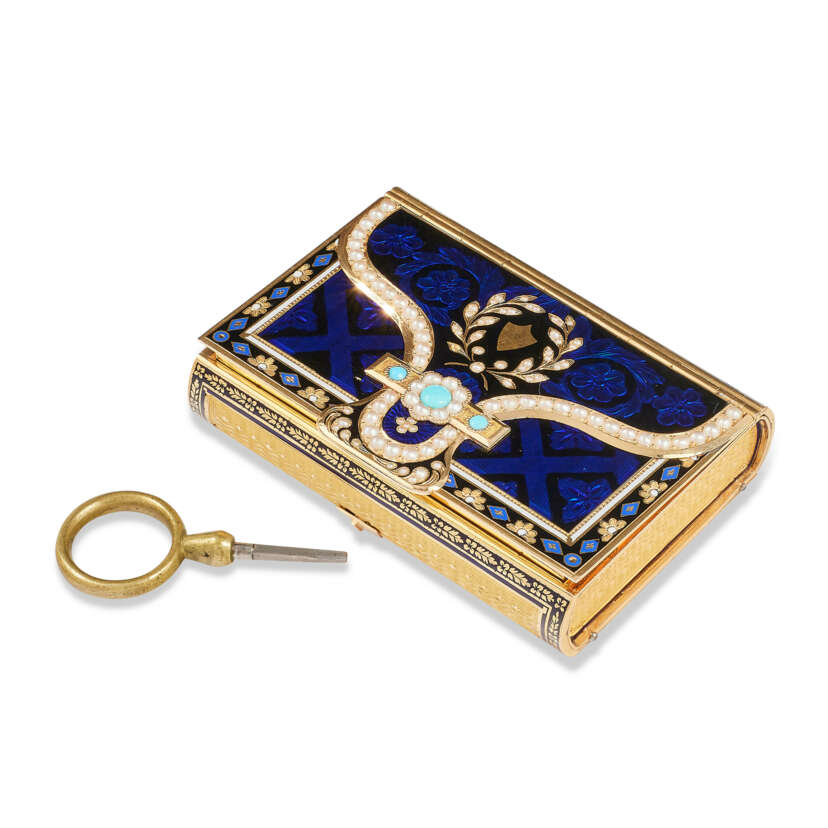
Boxes and Cases — The Collector: English and European Furniture, Ceramics, Silver, Gold Boxes and Works of Art
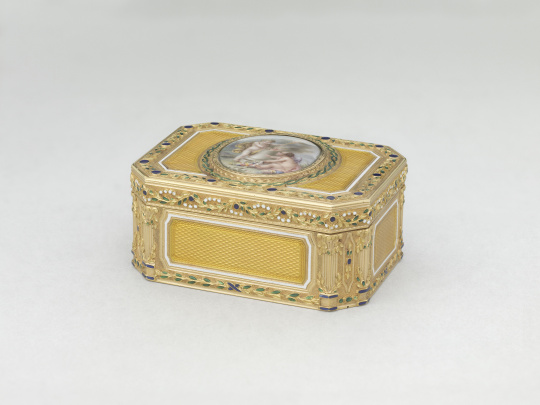
Charles Le Bastier, son of a Paris mercer of the same name, was apprenticed on 3 October 1738 at the age of 14, to Gabriel Vougny, marchand-orfèvre-joaillier. With the sponsorship of Jean Moynat, himself a noted gold box maker, Le Bastier became master goldsmith on 20 December 1754. He worked from the same premises in the rue Thévenot, near the rue St-Denis, until last recorded in 1783. Le Bastier was a successful and prolific maker of gold boxes who also supplied other retailers such as Jean-François Garand and Grancher of Du Petit Dunkerque, whose name or shop name appear engraved on the rims of several of Le Bastier's boxes. In the special tax list of 1774, he was listed 9th in order of the importance of his business. Since a number of Le Bastier's boxes survive in various collections (most notably in the Louvre and the Thurn und Taxis Museum, Regensburg), it is possible to trace the progression of his work from the earliest silver boxes with coloured gold ornament through a series of richly chased but comparatively plain gold boxes to the almost immediately recognisable gold and enamel boxes of his maturity.

Charles Le Bastier, son of a Paris mercer of the same name, was apprenticed on 3 October 1738 at the age of 14, to Gabriel Vougny, marchand-orfèvre-joaillier. With the sponsorship of Jean Moynat, himself a noted gold box maker, Le Bastier became master goldsmith on 20 December 1754. He worked from the same premises in the rue Thévenot, near the rue St-Denis, until last recorded in 1783. Le Bastier was a successful and prolific maker of gold boxes who also supplied other retailers such as Jean-François Garand and Grancher of Du Petit Dunkerque, whose name or shop name appear engraved on the rims of several of Le Bastier's boxes. In the special tax list of 1774, he was listed 9th in order of the importance of his business. Since a number of Le Bastier's boxes survive in various collections (most notably in the Louvre and the Thurn und Taxis Museum, Regensburg), it is possible to trace the progression of his work from the earliest silver boxes with coloured gold ornament through a series of richly chased but comparatively plain gold boxes to the almost immediately recognisable gold and enamel boxes of his maturity.

Charles Le Bastier, son of a Paris mercer of the same name, was apprenticed on 3 October 1738 at the age of 14, to Gabriel Vougny, marchand-orfèvre-joaillier. With the sponsorship of Jean Moynat, himself a noted gold box maker, Le Bastier became master goldsmith on 20 December 1754. He worked from the same premises in the rue Thévenot, near the rue St-Denis, until last recorded in 1783. Le Bastier was a successful and prolific maker of gold boxes who also supplied other retailers such as Jean-François Garand and Grancher of Du Petit Dunkerque, whose name or shop name appear engraved on the rims of several of Le Bastier's boxes. In the special tax list of 1774, he was listed 9th in order of the importance of his business. Since a number of Le Bastier's boxes survive in various collections (most notably in the Louvre and the Thurn und Taxis Museum, Regensburg), it is possible to trace the progression of his work from the earliest silver boxes with coloured gold ornament through a series of richly chased but comparatively plain gold boxes to the almost immediately recognisable gold and enamel boxes of his maturity.
